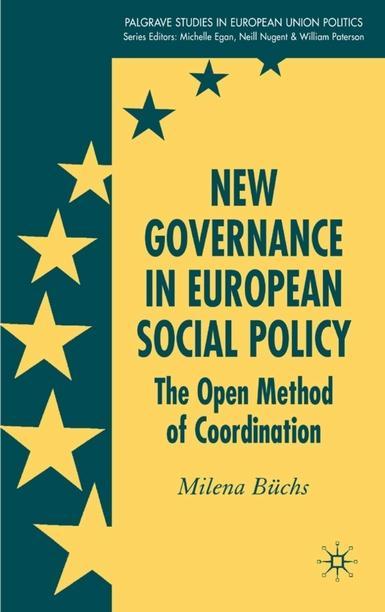New Governance in European Social Policy - The Open Method of Coordination
Milena BUCHS
Disponibilité: En stock
- Catégories: Emploi et affaires sociales
- Editeur: PALGRAVE-MACMILLAN
- Collection: Palgrave Studies in European Union Politics
- ISBN: 9780230506510
- Date de publication: 11/10/2007
- Reliure: Hardback
- Nombre de pages: 224
Résumé
The European Union is widely regarded as premised on an imbalance between market-making and market-correcting provisions, potentially weakening national welfare systems and the political legitimacy of the European project. However, a stronger role for the EU in social policy faces considerable difficulties. The Open Method of Coordination (OMC) represents a new governance approach to European social policy and was adopted in the late 1990s. It seeks to provide a 'middle-way' solution to the dilemma of European social policy in which the EU adopts a stronger role in coordinating member states' social policies while member states formally retain their authority in social policy.
New Governance in European Social Policy explores the effectiveness and legitimacy of a new policy tool in European social policy, the Open Method of Coordination (OMC). It analyses the tensions within the OMC's goals and instruments, develops an explanation of its functioning and applies a multifaceted framework for its evaluation.
'Overall, the book is very well written and the careful analysis of the UK and Germany illustrates why, when and under which circumstances the EES has been used in these two very diverse countries.' - Caroline de la Porte, Journal of European Social Policy
Table des matières
Introduction
PART I: THE OPEN METHOD OF COORDINATION
Conceptualizing the OMC
The 'Third Way' in European Social Policy
PART II: MEMBER STATE RESPONSES
Institutions and Actors
The European Employment Strategy in Germany and the United Kingdom
PART III: EVALUATION
Effectiveness
Legitimacy
Conclusion
Appendix
